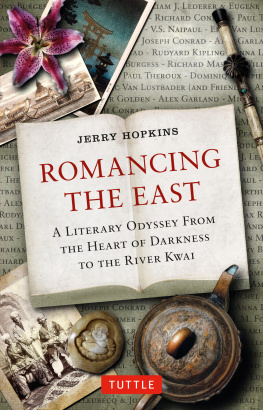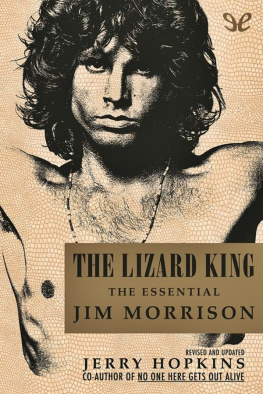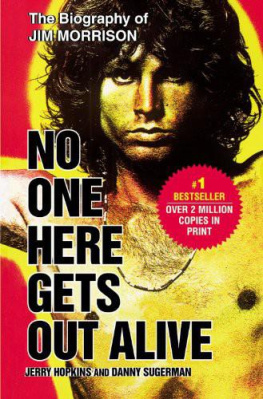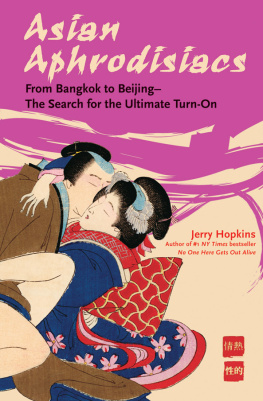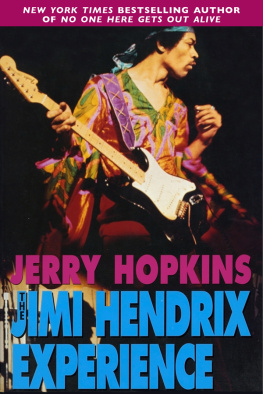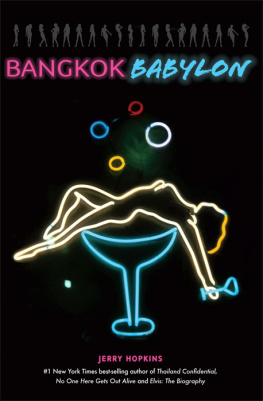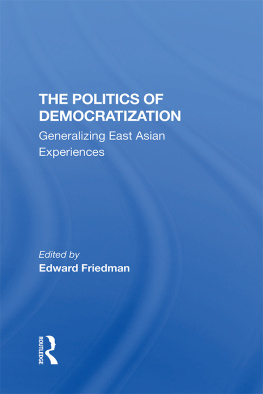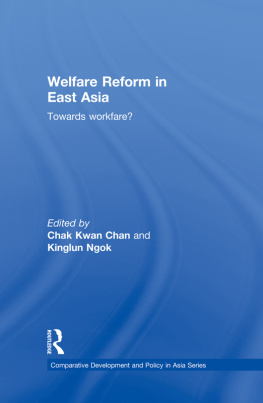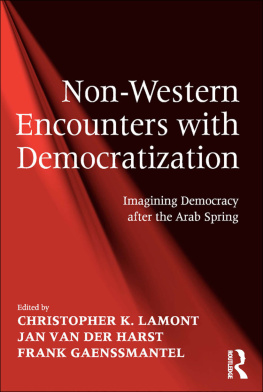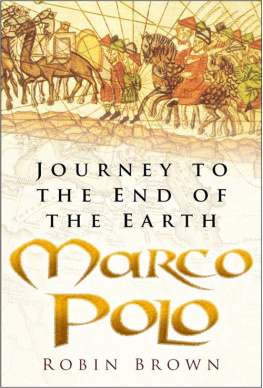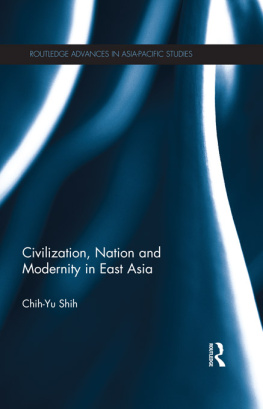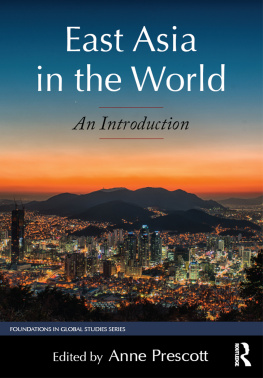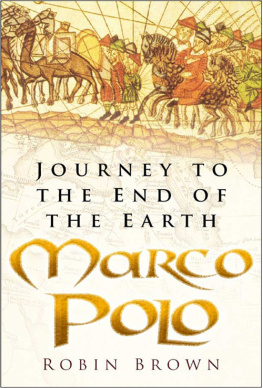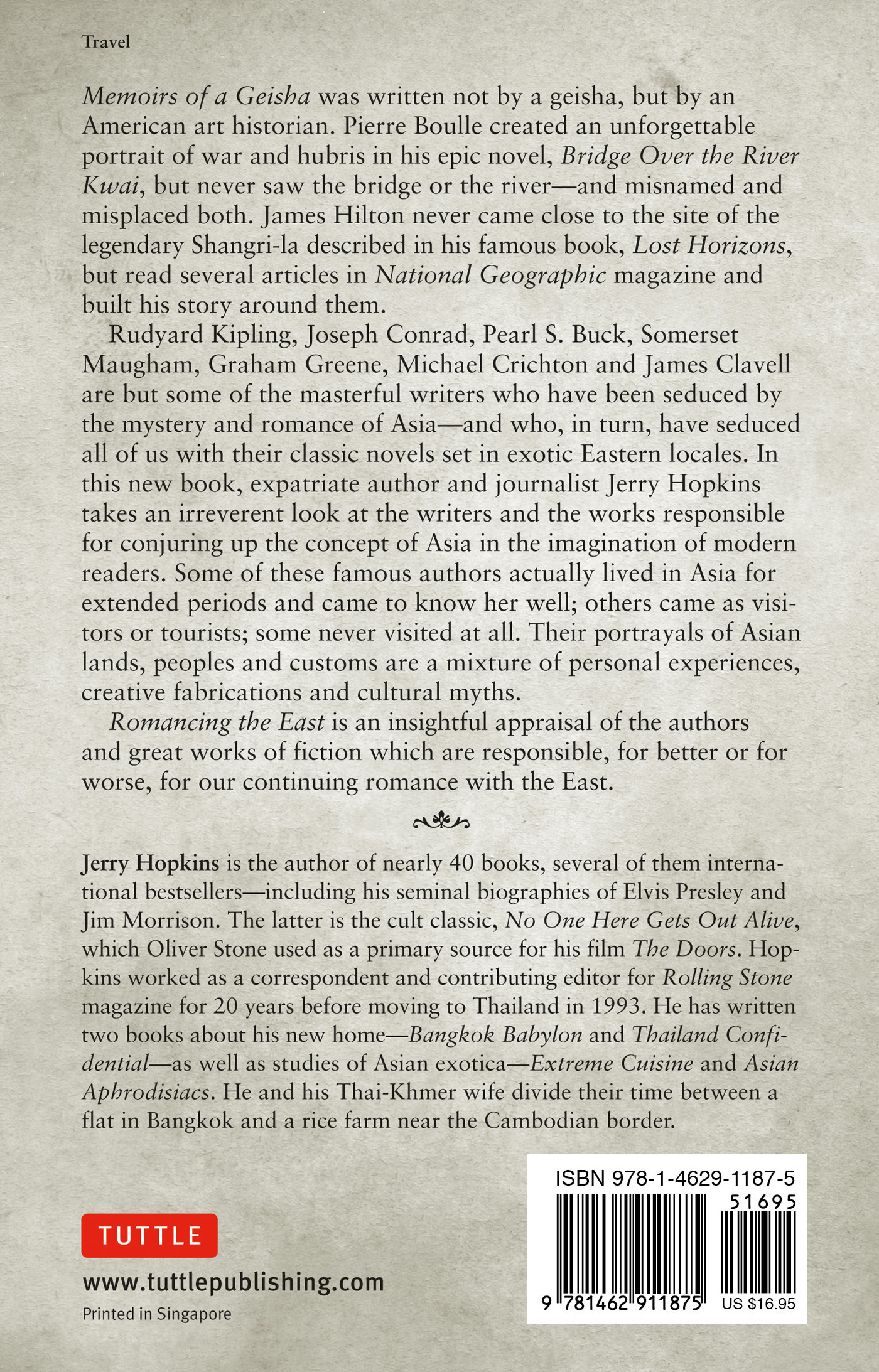Acknowledgements & Apologies
Noticeable by his absence from mention so far in this book is Edward Said, the man whose writings about Orientalism set the course for much of what is here. His thesis was simply that the Western perception of the Orient was based largely on prejudice and misconception. He was writing mainly about what is called the Near East, but his theory extended to the Far East, too, and many others have preceded me in exploring this area of thought.
I am further indebted to the glorious Internetall praise Google!as any researcher these days must be. I am certain that Ive picked up some misstatements of fact because of this. (Trying to correct the many errors that seem to plague Wikipedia is an unending chore.) I apologize for any misinformation that Ive here passed on and trust that the errors will not interfere with the point of view.
Many individuals have assisted me in preparing this book. Special thanks go to John Solt, who gave me a fuller and more accurate understanding of the geisha and vetted my chapter on James Clavell; Larry Grobel, who published a book of his interviews with James Michener; Phil Cunningham for years of information and advice about China, Thailand and Japan; John Frederick for keeping me honest on the subject of South Asia (and for suggesting authors who might otherwise have been overlooked); Steve Ross for his insightful comment on Suzie Wong; and Joe Leoni for helping me with Charlie Chan.
Many writers who took Asia as a subject are not in the book. For instance, I made an arbitrary decision to exclude virtually all novels about the Wests three most recent Asian wars (with the Japanese, the North Koreans and the Vietnamese). Im sure there are others I missed and to them (or their memory) and their fans, I extend my apologies.
Finally, I would like to thank all the authors who are included here for improving my reading list over the four years since the book was conceived. Now I shall return to my less challenging reading, enriched by this experience but not yet cured of a lifelong addiction to mysteries. A statement that may, in fact, explain why I am so enamored of Asia. It's the mystery.
Thanks again to all.

Joseph Conrad
The Myth of the Great White Rajah
Joseph Conrad was one of the twentieth centurys great artists and puzzles, a man who said he detested the sea yet spent sixteen years sailing it, then became one of its greatest literary champions, an author who questioned the political and moral worth of writing and today is praised for inventing a new kind of modernist novel, in which adventure and intrigue were raised to the level of ethical parable. All this, in what was not even his second language but his third, after Polish and French.
He also was a romantic and an adventurer, well suited for a time when European empires were at their peak and exploration of the remotest places on earth stimulated the late-Victorian readers appetite for the exotic (already fostered by Kipling and Stevenson). Although his journeys took him to the Caribbean, South America and Africa, and included gun-running off the coast of Spain, it was Asia he put on the world map, introducing in vivid detail much of Southeast Asia in such novels as Almayers Folly, An Outcast of the Islands, Victory , and Lord Jim , as well as in numerous short stories. Even his masterpiece, Heart of Darkness , which told of the horror witnessed as captain of a steamboat on the Congo River, is now identified with Asia, thanks to Francis Ford Coppolas cinematic retelling of the story set in Vietnam, Apocalypse Now .
Born Jozef Teodor Konrad Nalecz Korzeniowski in the land-locked Polish Ukraine, he was orphaned at eleven, raised by an uncle in Poland, and went to sea from Marseilles when he was just seventeen. Shifting from the French to the British merchant navy four years later, he acquired both a Master Mariners certificate and British citizenship, officially changing his name to Joseph Conrad in 1886.
It wasnt until he retired from the sea at thirty-seven, in 1893, that he began to write in earnest and while his early novels are now regarded as classics, twenty years passed before the publication of Chance , a lesser work, brought popular and financial success.
He was born December 3, 1857, in Berdychiv, and died August 3, 1924 in Bishopsbourne, England, of a heart attack, survived by his widow and two sons. He is buried at Canterbury, his epitaph from Edmund Spensers The Faerie Queen : Sleep After Toyle, Port after Stormie Seas, Ease After Warre, Death After Life Does Greatly Please.
Master, Mariner
And this is how I see the East. I have seen its secret places and have looked into its very soul; but now I see it always from a small boat, a high outline of mountains, blue and afar in the morning; like faint mist at noon; a jagged wall of purple at sunset. I have the feel of the oar in my hand, the vision of a scorching blue sea in my eyes. And I see a bay, a wide bay, smooth as glass and polished like ice, shimmering in the dark. A red light burns far off upon the gloom of the land, and the night is soft and warm. We drag at the oars with aching arms, and suddenly a puff of wind, a puff faint and tepid and laden with strange odors of blossoms, of aromatic wood, comes out of the still nightthe first sigh of the East on my face. That I can never forget. It was impalpable and enslaving, like a charm, like a whispered promise of mysterious delight.
Thus, Joseph ConradSecond Mate Jozef Korzeniowski, called Polish Joe by his shipmatesmade his first Asian land-fall in 1883, rowing ashore after his ship caught fire, blew up, and sank in Indonesias Sunda Strait, approaching Java Head.
It was not, as they say in the East, an auspicious beginning, nor was it so discouraging that Conrad, twenty-six years of age, didnt soon come to regard the region as a kind of home away from home. For another ten years, including several voyages in these waters as a captain, he sailed to Borneo and the Celebes in the Indonesian archipelago, along the Malayan coastline through the Gulf of Siam from Singapore to Bangkok. Such exotic destinations would appear in his novels and short fiction and in the hundred years since they were written they in turn would act as the lure and promise that drew generations of visitors after him.
It was a message and a pledge that appeared repeatedly in Conrads worksthe flowery promise above from a barely fictionalized account of the sinking of the S.S. Palestine on Conrads first voyage as a sailor in the British Merchant Navy, written in 1898 and simply titled Youth .
Similarly, the narrator in one of the Conrads best and most acclaimed longer works, Lord Jim , said of the man for whom the book was named, Hehad the faculty of beholding at a hint the face of his desire and the shape of his dream, without which the earth would know no lover and no adventurer. He captured much honor and an Arcadian happiness (I wont say anything about innocence) in the bush, and it was as good to him as the humor and the Arcadian happiness of the streets to another man. Felicity, felicityhow shall I say it?is quaffed out of a golden cup in every latitude: the flavor is with youwith you alone, and you can make it as intoxicating as you please.
Jim (he had no surname) was first mate aboard a ship carrying a cargo of some eight hundred religious pilgrims when it collided with an unseen obstacle while crossing the Arabian Sea. He panicked and fled in the only lowered lifeboat with his fellow officers, abandoning the ship and its passengers, believing the vessel went down. It did not and when a French frigate rescued everyone, Jim was taken before a court of inquiry and stripped of his maritime certificate for his dereliction of duty. The rest of the novel told of his long flight to escape his perceived cowardice, eventually taking him into self-enforced exile as a white trader in a remote tropical outpost called Patusanin reality, the Celebes, a part of Indonesias famed Spice Islands. There, he at last found redemption and happinessnot to mention a lovely maiden to bear his childas the revered leader of a primitive Bugis and Malay settlement, finally shot through the chest by an angry chief.
Next page
